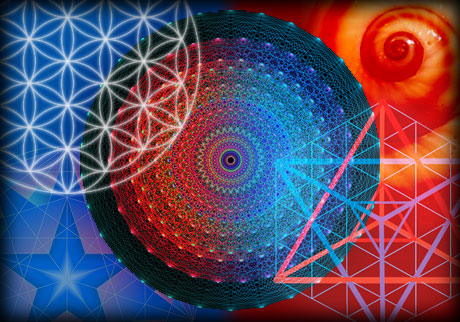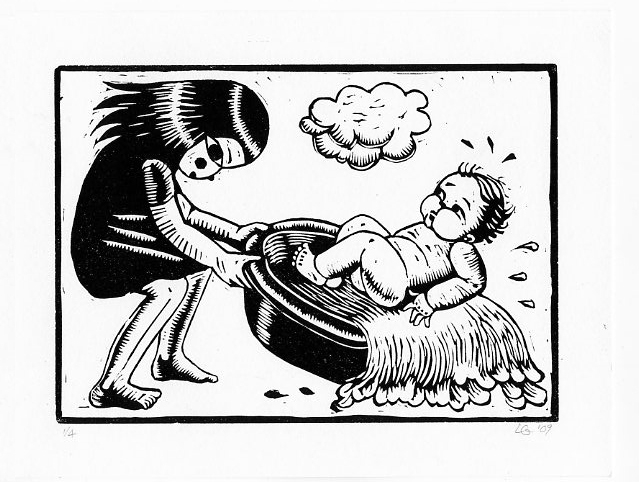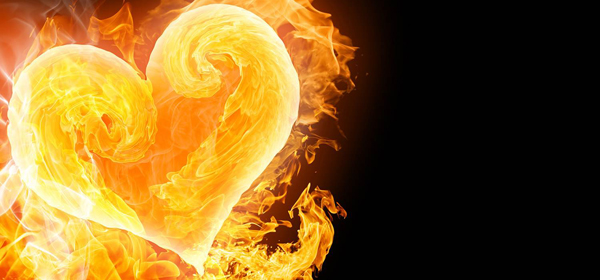TELEPORTATIONS, precipitations and rappings, used in the past to be a common occurrence. The ethers, audibly, tangibly, could carry those sounds as given out; whilst also as steady and as coherent as to allow transportation of far flung objects. Neither of the two phenomena occurs today; certainly nothing so significant. However these occurrences were usually blamed upon the nixies or the dead; depending upon it being a 'knock on wood' or a saucepan flung at the head!
The sub-physical properties of the ethers, and also concurrently, those within immediate range thereof, do vary from location to location, dependent upon: hemisphere, climate, proximity to sea, altitude and interference (from a number of influences). Much the same as the quality of the air may be measured, so too may the finer attributes of uncontaminated atmospheres, impressionable or fully impressioned, be actually, measurably significant. Just as visibility through crystal is superior to transparencies otherwise, so too the properties utilized within the ethers translate impressions back to men with defined resonance and clarity, marginally affected.
It is interesting is it not, that people often speak of 'clearing the air'. Of course this usually refers to honesty, but is as good a colloquialism to cite as any. In this instance 'clearing the air' shall refer to the attempt to actually improve those conditions of surrounding and immediate ethers, that they might be in accordance with those aspects most suitable to wholesome, healthy, enlightening discourse, meditation or prayer - that the atmosphere be relieved, be unencumbered. Of course this should be a tall order particularly if one were to approach this task as a fanatic; but we talk in terms of improving conditions rather than seeking complete purification.
Of the favored practices today, we find that folk do often sprinkle the water, light the candle and incense, ring the bells, the gongs or whatever, chant, incant, cut the air in imaginative motion, sit in circles, etc. etc., and or pray.
Now the practice of the above list is fine and quite helpful, and certainly does make a difference (which we shall outline in a moment). However it is the last consideration which is of the greatest difference; and as one may often start with an opening prayer, it is advisable to include in this conferment, the wish and the need for a 'clearing of the ethers'. Because the very sobriety of prayer does indeed clear the room of unsavory influences to begin with - those which cannot tolerate prayer evacuate readily - one is halfway there to the whole job done. Furthermore, conditions surrounding one may be altered and attuned; but only if asked for, envisualized and concentrated upon. For not all have the good fortune to sit acrest a mountain top or bathe in the crystalline air of the sacred. One is impinged upon by influence upon influence; nothing which would particularly upset or hinder a man of itself, but does not make for a good response time, set in the spaces between a man and his thought.
The singer will know this. That as the words issue melodically, there is a marked difference in perception on behalf of the singer, and for that matter any others who may be in proximity.
The spoken word is melodic in part, but with a predetermined meter and such inflections that are designed to be impressioned by the man speaking them, but also to be received cordially. One may usually sense the boundaries of such, although some have a problem with this. We may look at the differences and implications of each. There is a range of projection, not so much as from loudness to silence (although this of course does make similar exchange), but from melodic to monotone. The difference of delivery style and its subsequent understanding from those who receive is not only because of their perception in relation to melody or drone, but also how exactly the veritable ethers are subjected by such an issue.
Melody quickens, melody weaves in and out with each note enlivening and enlightening (like highlighting) those aspects of the ethers which are responsive to those particular notes - thus making for ready impression for those within proximity to experience it. A drone, on the other hand, stimulates only a small and concentrated portion with little impact, very little attractive impact, and the men concerned do not respond, because the droning has not stimulated those etheric notes which are to men inspiring. One may be able to gauge from this that the practice of clearing the ethers does also enable one to impress and receive a more accurate and clear response to that sympathetic resonance as described.
It is not that the music permeates all of the ethers, but that they are enlivened and stimulated, sympathetically throughout. Conversely, particular notes within particular ranges do belong to particular ethers, so that the family are held within the multiphased vitality-fluids which circulate within specific ranges.
The studies made of actual sound expressions phonetically would be enriched if one understood also the equations of tone/note/sound expression. Sounds have parent notes, but also of course are coupled with the complete range of notes. The example of 'g': guh, the 'g' sound does infer differing meanings, differing expressions, embodied by different notes. For the 'g' sound, as with all other sounds, is the delivery of a note, not a note of itself. It is precisely the form of the delivery which certainly makes up the nature of that given note. However, the note itself will determine the character of the sound.
Now in the case of your friend's therapies*, quite often the men and women concerned would feel their own way into the notes that they were to produce, because it is coming from themselves in order that subsequent remedies for themselves be made way for: Coffee just as you like it!
However, in the case of affecting others than yourself - with a particular point in mind - the relationship of such sound to notes is as important as paint-pigment is to water, is to painting; and too, from where the notes do issue forth.
One can say that there is always an intrinsic difference between that which is imparted, issued by way of a living, live, emanating being, as opposed to that which is imparted through mechanical or lifeless delivery. Furthermore there shall also be a difference between the notes as given through a trumpet blown by a man and those which are pumped - measurably etherically different. (Although this will not apply to an electronic organ being played, or on remote relay.) The old test with plant growth would clearly establish such differing characteristics as performed in the instance of 'live' noise as distinct from just noise.
In the case of 'live noise' emanating as from a living being, radiating out, as it were, we find that all sound is characteristically imbued by he who does issue. So we find that there is yet another characteristic to our sound/note: it carries a persona of its own. Furthermore, there are only parts or traits, which do correspond with the note issued, and in likeness and in emphasis of the moment, there is but a fragment of the man (or being) delivered with the sound/note determination.
Communication is basic to the imparting and receiving of these impressions so carried and illumined with the ethers. Whether vocally reproduced or mentally imparted or received, it is sequence and color rather than word, which mark out the notations of communication. It is pure expression, rather than abstract symbolism. Communication imparts that which is, firstly and lastly.
If one wonders how folk communicate otherwise, without sympathy to this, the answer of course is that maybe within their thinking they are indeed clumsy, confused and unsympathetic to their true forms of communication. Which we might add, they do indeed take part in and live by, known to them or not. It is not a matter of acquiring any new talents here at all, but rather signifying that which we do already in reality go by.
It is also true to say that a repressed man will "hold it all in", and there is much would-be expression there, so closely bound to the chest with much pressure besides. For we may measure our activity by way of that which we give out (surrender) of ourselves into the world.
For some, all movements are forced or as clumsy, which they themselves would testify to, that there is an awkwardness which gives an impression of frozen limbs or a fragmented motion. A child who is silenced excessively may well suffer from this later on into adult life. He may not cry, he may not release, and he may not subsequently endure well. He cannot sing, he is quietly spoken - or drastically overbearing at those times when regulation ceases. He inwardly stutters and hesitates. Many a child was cuffed around the head for 'making too much noise'. This noise is what we give out firstly by way of experiencing 'the water' so to speak, it is the primary and first expression - be it enhanced with joy, with love, and so forth.
The 'screaming therapies' as undignified as they are, can be profoundly useful to the individual who suffers these inhibitions; providing that one does not direct the screaming at anyone or anything- not even with anger, and not at themselves or the past- just purely creating a din, for a time set by them, in a suitable and convenient place. Controlled outbursts will encourage the individual to begin such release as was stifled in the past.
Each star in the sky pulses with radiant sound- that sound which it emanates of its own, and that which communicates to it. Such symphonies as are the galaxies, are about our activity within our own microcosmic world, right here in our surrounding ethers; circulating too, through that which makes for the bodily constitution.
An honest word spoken - especially one with kind intent - is issued necessarily from the key of sincerity. Half-hearted ejections are spawned to a wind which flies back into the face of the pronouncer. The two are very, very different indeed. One can test honesty and lies upon a plant also. A man may be made quite ill by keeping in the company of lies. The reason for this being, that there are indeed mixed signals whereby he who meets with a lie can and does distinguish the reality of it, regardless of what the overriding consciousness submits to. To keep balance of the two counter-projections and make accommodation for such within oneself, makes for a strenuous and taxing existence.
Many actors fall prematurely ill or to despair for this reason. Of course in the case of an actor he does unwittingly pronounce lies - in the sense of his adopted persona - but even this is enough to cause a reality of conflicting soul impressions, as well as altering the etheric make-up sufficiently to cause much damage.
What of the speechless monk? In humility he says to the world "I shall be no more significant than a flea on the dog's back of community!" But because of such silence he is not stronger in those aspects which would have been to the good had he not weakened his potencies of production. For one must draw from the well that the well might replenish; this is the law as regards all inexhaustible gifts of the soul. In the case of silence we find that a man who withholds intentionally as prerogative, places such limits which become incorporated as habit to him and that there will come a day of no choice. However, if in open prayer or psalm or quiet mutterings, he does keep in practice, then the explicit words stream into the ethers with greater intensity.
*Philophonetics


























